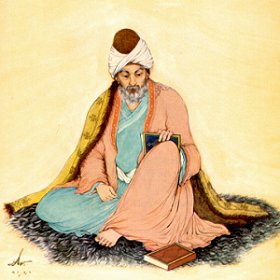You and I have spoken all these words, but as for the way
we have to go, words
are no preparation. There is no getting ready, other than
grace. My faults
have stayed hidden. One might call that a preparation!
I have one small drop
of knowing in my soul. Let it dissolve in your ocean.
There are so many threats to it.
Inside each of us, there’s continual autumn. Our leaves
fall and are blown out
over the water. A crow sits in the blackened limbs and talks
about what’s gone. Then
your generosity returns: spring, moisture, intelligence, the
scent of hyacinth and rose
and cypress. Joseph is back! And if you don’t feel in
yourself the freshness of
Joseph, be Jacob! Weep and then smile. Don’t pretend to know
something you haven’t experienced.
There’s a necessary dying, and then Jesus is breathing again.
Very little grows on jagged
rock. Be ground. Be crumbled, so wildflowers will come up
where you are. You’ve been
stony for too many years. Try something different. Surrender.
Published:
None
Length:
Regular
Literary Movements:
Islamic Philosophy
Anthology Years:
2023
Themes:
Faith & Hope
Joy & Praise
Literary Devices:
Allusion
an expression designed to call something to mind without mentioning it explicitly; an indirect or passing reference
Enjambment
a line break interrupting the middle of a phrase which continues on to the next line
Imagery
visually descriptive or figurative language, especially in a literary work
Metaphor
a comparison between two unrelated things through a shared characteristic
Personification
the attribution of human qualities to a non-human thing

